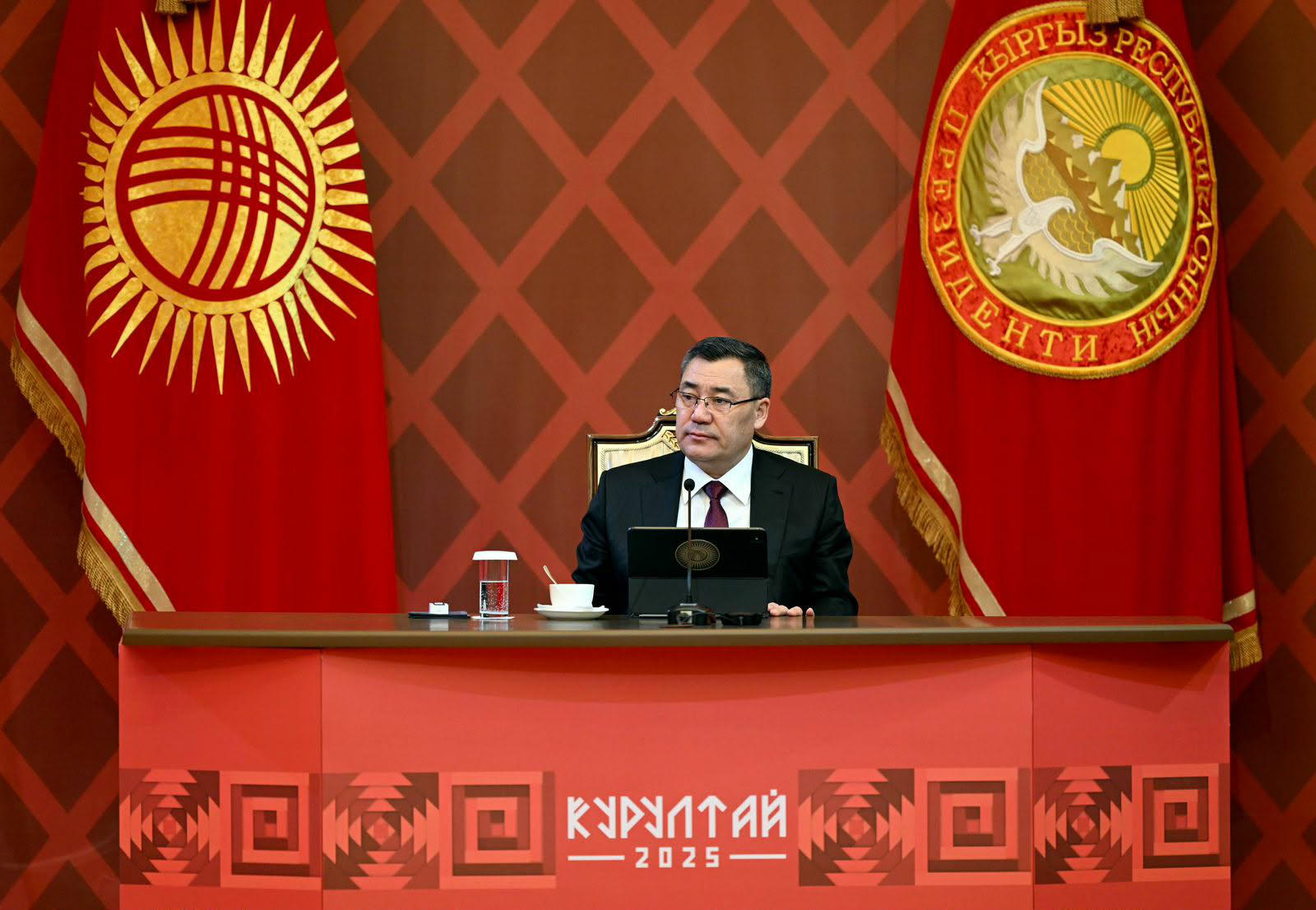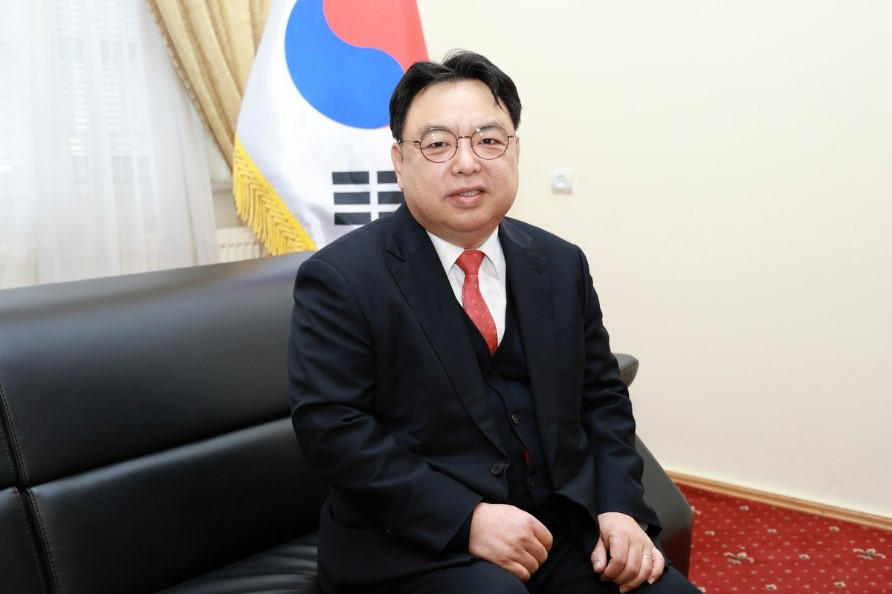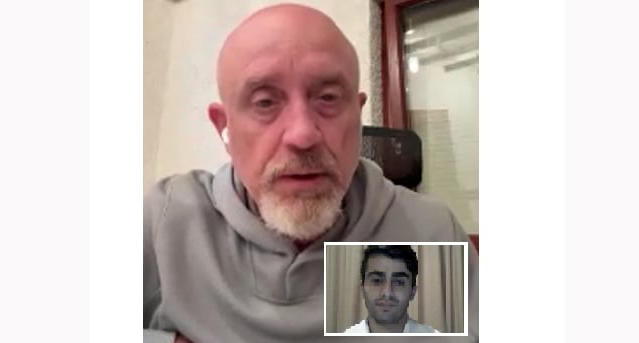Pawel Herczynski: The report on the implementation of 12 priorities will be unpolitical, merit-based - member states will also assess overall progress of Georgia, including rule of law and freedom of media
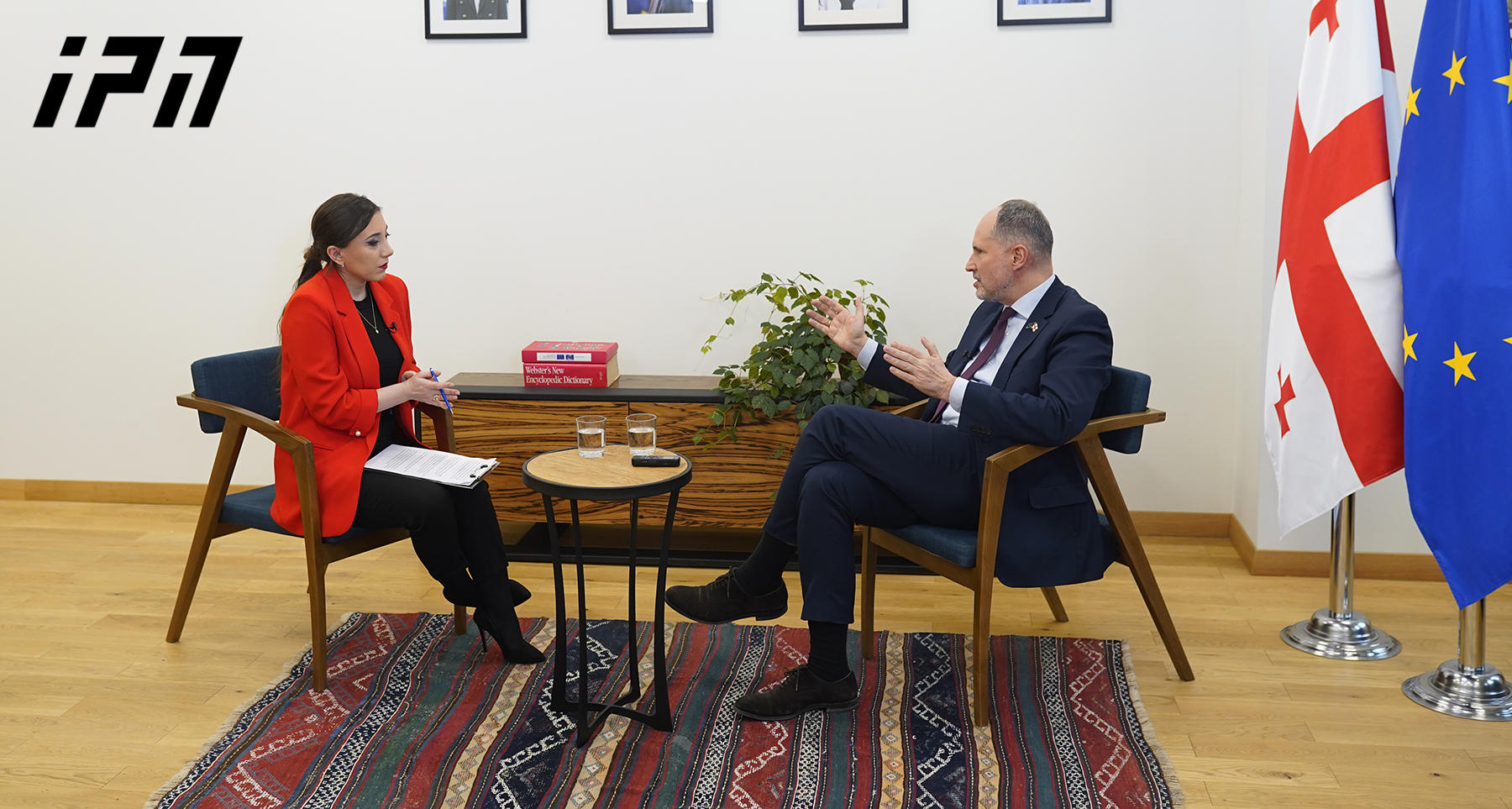
Nothing is guaranteed and decided yet, so all parties should work together to achieve maximum progress in relation to the 12 recommendations - this is one of the main messages that EU Ambassador to Georgia Pawel Herczynski voiced in an exclusive interview with InterPressNews. With the same statement, the ambassador also responded to the part of the government representatives who claim that if the European Union does not make a political decision, "Georgia is guaranteed to receive the candidate status in December".
How the ambassador perceives the hints that the EU is making a political decision regarding Georgia and how he assesses Georgia's readiness to become a member of the EU family - Pawel Herczynski discussed these and other issues in a conversation with IPN.
"I consider myself extremely lucky that I have been chosen to be the next EU Ambassador in Georgia. After three weeks of staying in Tbilisi, I can only say that, clearly, it was the right choice," - you made this statement in an interview with IPN a few months ago. I want to ask you, how do you evaluate the 6 months of working in Georgia, do you still think that you made the right choice?
I'm really glad that we have a chance to talk to each other nearly six months after I have arrived. Clearly, after six months, I have a better understanding of the place and the people, and the circumstances. And clearly, I am again of the same opinion, I consider myself very lucky. It was the right choice to come to Georgia. I'm thrilled to be in a country where things are happening, where things are happening very fast. It's a very dynamic and vibrant place. Sometimes it takes an effort to follow all these developments. But clearly, this is a place to be and I sincerely have to say that I have a feeling of participating in something very big. And I feel that Georgia is a place where history is made. This is a truly historic moment for this country. And I'm really privileged to be part of it.
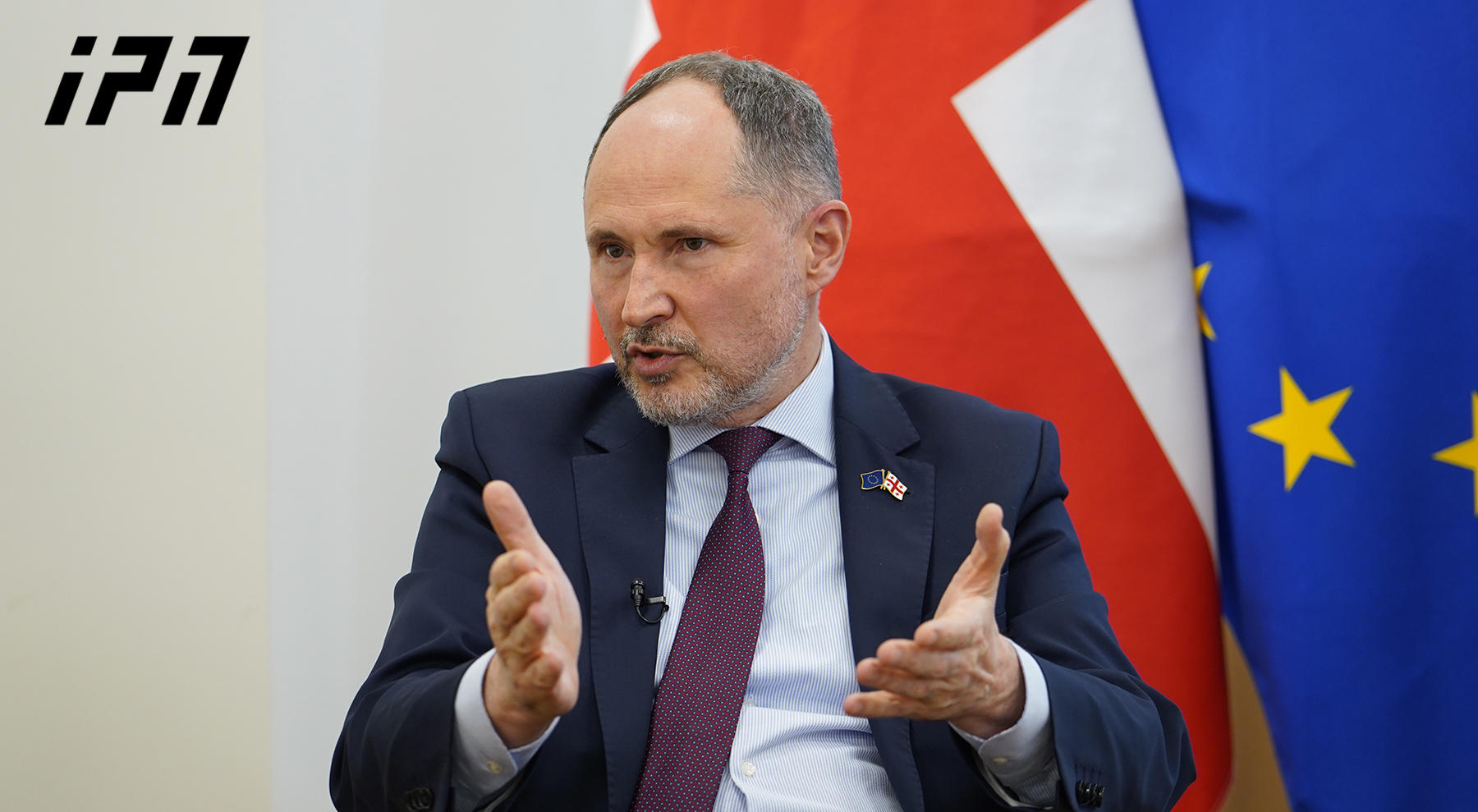
However, history cannot be made without challenges. So I would like to ask you about the challenges you face here, and you see that Georgia is facing. What are the most problematic issues that you witnessed during these six months in Georgia?
Look, clearly the times are unprecedented. On international stage, Europe is faced with terrible war. Russia's unprovoked, unjustified and increasingly brutal aggression against Ukraine has put all of us, all international community, in a completely new situation. European Union, from the first moment, has stood on the right side. This unprecedented situation actually has helped us to stay even more united, and to act even more decisively. And I'm really proud of representing European Union in this particular moment. When it comes to Georgia itself, Georgia has decided to move forward on its paths towards European Union membership. It's not an easy process. And not a short process. But my role is to make it as easy as possible. A lot depends on Georgians themselves. And we have been trying to speak with everyone. I have been meeting all leaders of different political parties, and my message has been very consistent. You need all to work together in an inclusive and cooperative spirit in order to make it happen. And I sincerely hope that step by step, this is the way that Georgia will follow in the coming months and in the coming years.
About a week ago, European Commission published its assessment regarding the alignment of Georgia with the European Union and its acquis. What did this part of the assessment show us, and to what extent does it give grounds for the kind of optimism that is observed in government circles?
European integration is a long process. Last year, Georgia was sent the so-called questionnaire, a lot of very detailed questions. I had a chance to meet ministries, the Ministry of Agriculture, Environment, Education, Regional Development, and so on and so on. And so I talked to all the ministers, I talked to the leadership of all the ministries, and I saw myself firsthand how serious and how dedicated these people are when it comes to approximation of Georgian administration with the requirements of European Union. Based on this questionnaire, Georgia sent answers to the European institutions. It took several months for the European Commission to analyse the answers that were provided by all the ministries of Georgia and the Government. And the outcome came several weeks ago, in my view, very positive, assessing the readiness of the Georgian administration to assume the responsibilities of EU membership. But this is a process that is ongoing, and Georgia has been assessed in 33 different areas. In some of those areas, their state of preparedness is more advanced than in other areas. In some areas, progress still needs to be made. And of course, as the European Union, including this Delegation of the European Union in Tbilisi, we are ready to continue helping, to continue assisting the Georgian administration, different ministries in order to make sure the Georgian administration is as well-prepared for the future EU membership as possible. Very important to note that this assessment was the technical assessment of the state of preparation of Georgia's administration for the requirements of the membership. This assessment did not include the 12 priorities, this is in front of us.
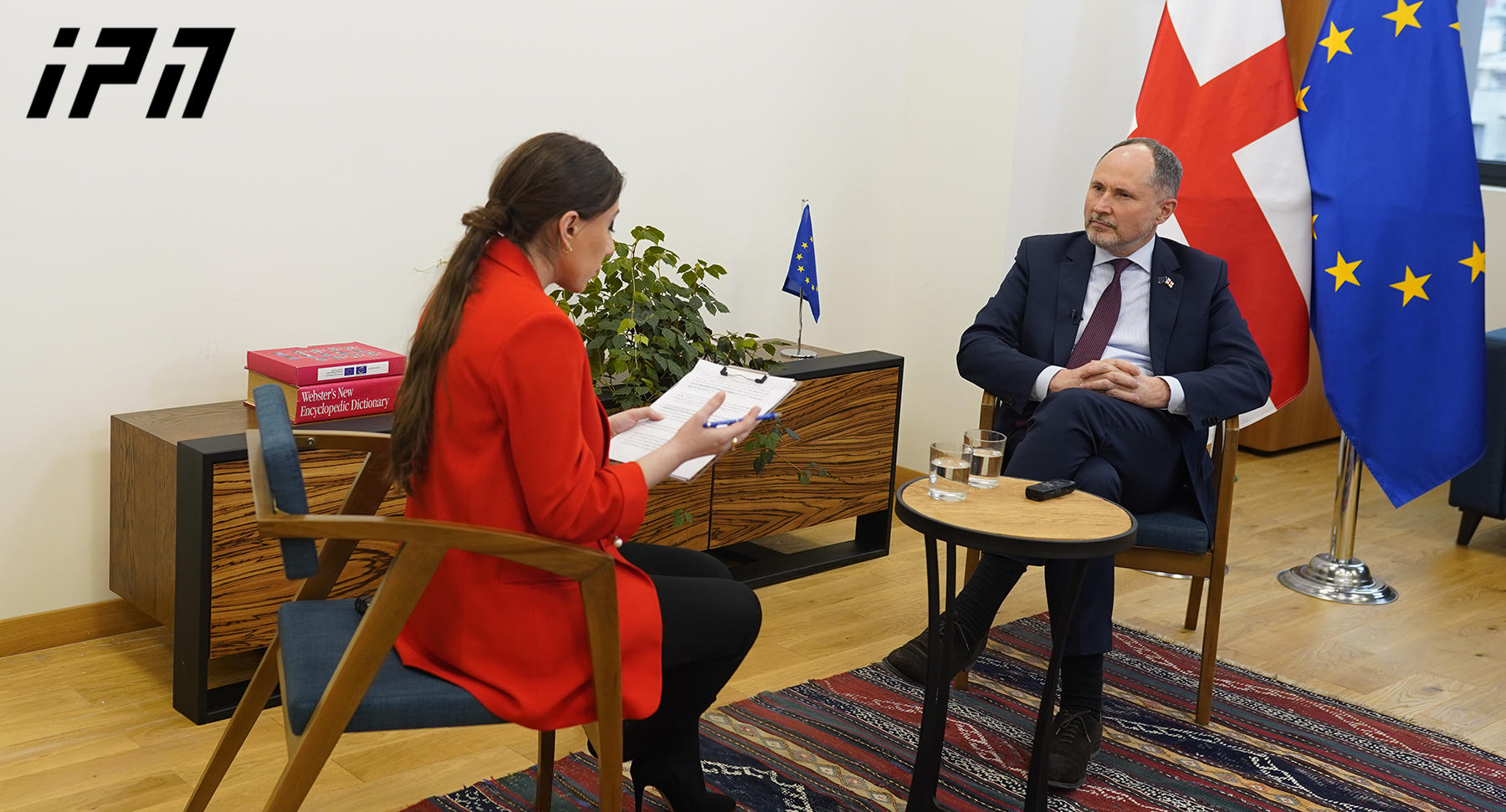
You mentioned that more work needs to be done in some directions. Can you specify these directions?
The technical assessment is very technical. It talks about 33 different areas in six clusters. And as I understand, it has been very deeply analysed. And everyone knows what are the areas where further progress needs to be made. So I will not go into details. These are very technical details, we will continue the work with different ministries in order to make sure that they can advance and of course, we stand ready to help them and assist as much as possible.
Mr. Ambassador, can you say that the evaluation from the EU side might be less positive regarding the 12 recommendations?
This is not for me to say, what I can say is that very shortly, we will start working on the assessment. This will be done in a very inclusive, very transparent way, we will approach the government for their input, we will consult other stakeholders, we will reach out to civil society. This will result in a report that will be published by the European Commission in the middle of October this year. Before that, I have very little to say. What I really want to stress is that there are still several months left. So there is still time. And I would like to encourage everyone in Georgia, both the government and the opposition to work together in order to make as much progress on the 12 priorities as possible. This clearly requires inclusiveness on part of the government. And this also requires constructive approach on part of the opposition. And the place where these discussions should happen is the Georgian Parliament. This is why we have stressed with the opposition the need to stay in the Parliament, to stay engaged, to work constructively in order to make as much progress as possible on 12 priorities.
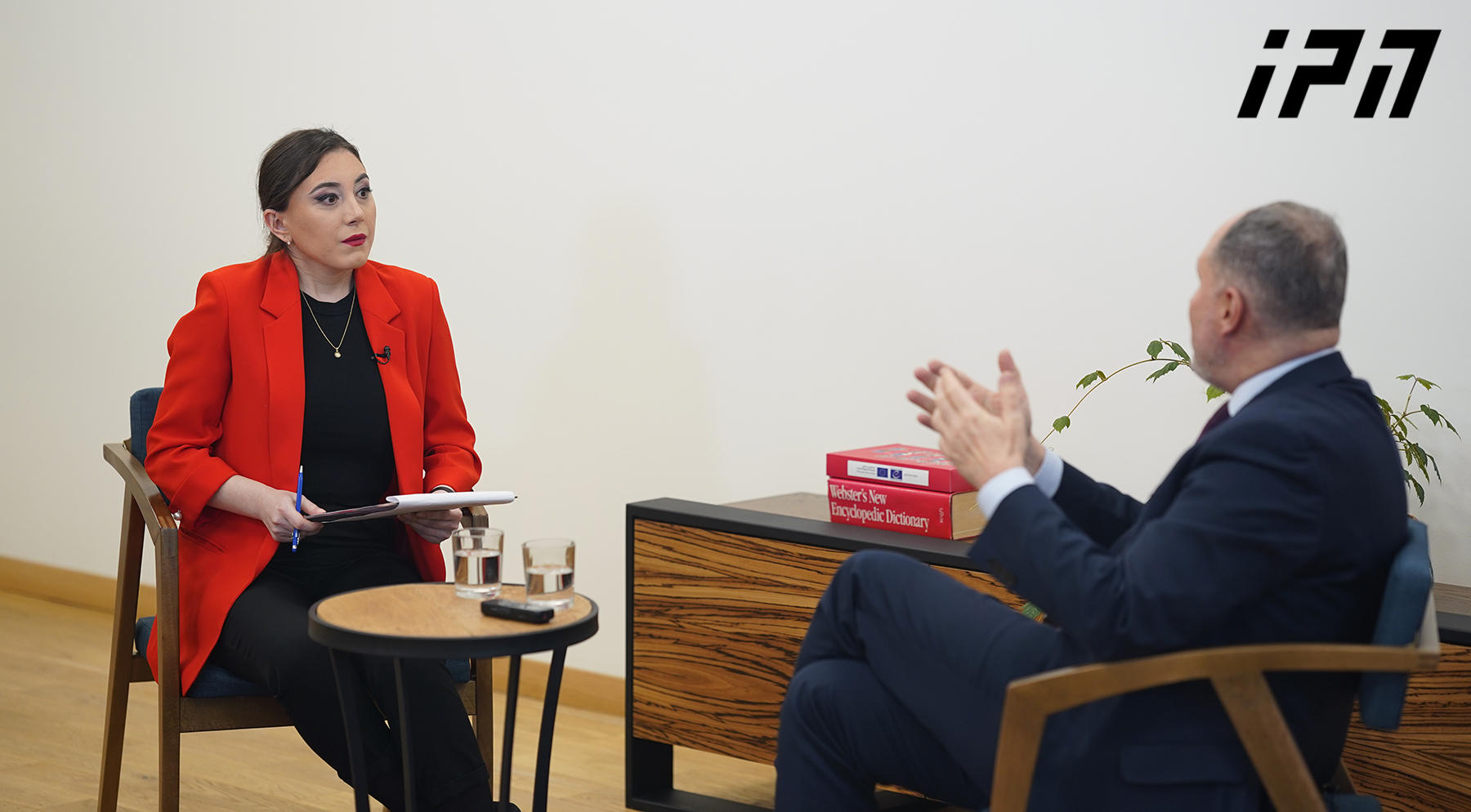
Irakli Kobakhidze made the following statement regarding the candidate status: "The candidate status is inevitable in December, if a political decision is not made," - is this statement partly an accusation against the European Union, that it does not make a decision based on how Georgia fulfills the recommendations?
Let me once again explain what will happen this year. We will start very shortly to draft an opinion about the state of implementation of the 12 priorities. This will be a process that will last several months it will be a very inclusive process, Georgian government will be invited to present its own opinion. We will also consult with other stakeholders, including civil society. And this will result in the opinion of the European Commission that will be published in October this year. This will be a report that will be merit-based, very unpolitical merit-based report. Then a few weeks later, the 27 EU member states, at the highest possible level, at the level of European Union presidents and prime ministers, will meet and will assess the progress made by Georgia. This assessment will be made first and foremost based on their report that will be presented by the European Commission in October. But it will be for member states, presidents and prime ministers of 27 member states based on unanimity to decide on the future steps when it comes to Georgia's wish to become a member of the European Union.
Some politicians think that the issue of getting candidate status depends on Mikheil Saakashvili, that is, whether he will be released or not. In response to this opinion, the government, for example, the general secretary of Georgian Dream, Kakha Kaladze, stated the following: "If granting Georgia the status of a candidate country for EU membership depends on whether or not the convicted Mikheil Saakashvili is released from prison, then they should keep the useless status for themselves." I want to ask you - does the European Union itself approach the issue in this way?
It will be for the 27 member states, at the highest level of presidents and prime ministers, to decide by unanimity about next steps when it comes to Georgia's aspiration to become member of the European Union. This decision will be made based on the report that will be published by the European Commission in October this year. But for sure, member states will also assess overall progress of Georgia, when it comes to approximation with European Union standards and values. And we are talking about the rule of law. We are talking about justice, we are talking about vibrant civil society, we are talking about freedom of media, all these issues will be taken into account by 27 member states. So coming back to your previous question, nothing is decided, and nothing is inevitable. That decision will be taken by 27 member states at the end of the year by unanimity. My message is there is enough time to prove that Georgia has made progress and is ready to sit around the table as a future member of the European Union.
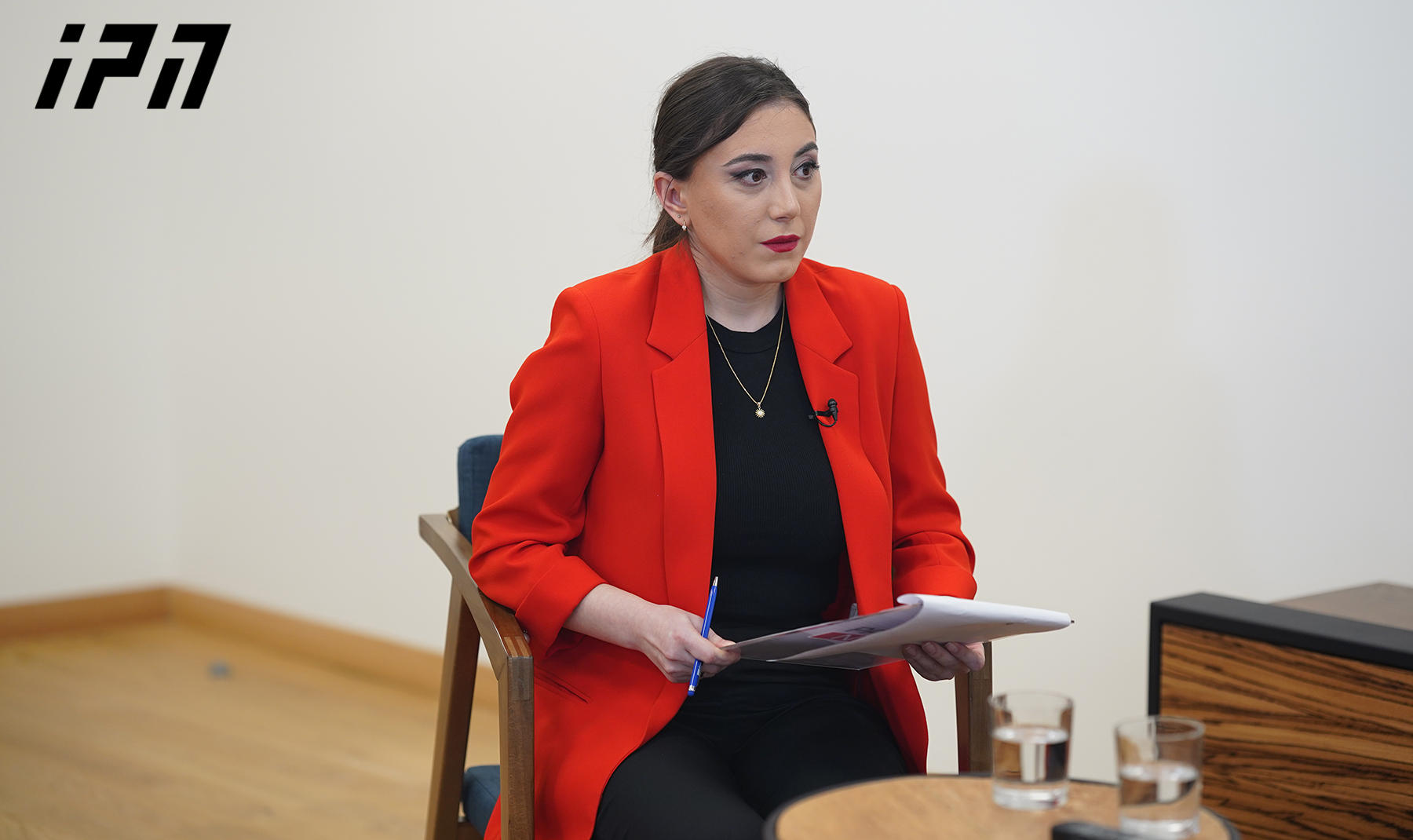
There is one issue that I would like to clarify. There is another opinion that with reforms or without reforms, Georgia will still get the candidate status due to the fact that in the changed geopolitical situation, our country as a transit state, has even greater importance. I would like to directly ask you, what the status of the candidate will depend on - on how Georgia has fulfilled the tasks and democratic reforms set for it, or on how important Georgia is as a transit country. That is, roughly speaking, what will be more important reforms or, for example, an underwater Black Sea cable?
Georgia has moved a long way. When it comes to cooperating with European Union, we have Association Agreement, we have a free trade agreement, we have a visa-free regime. So our economic cooperation is becoming more and more intense. And in order to cooperate economically, we don't need Georgia's membership in the European Union. However, Georgia's membership in European Union is much more than economic cooperation. This is Georgia becoming a member of European family. This is Georgia securing its peace, stability and prosperity. For generations, European Union has been the most successful integration effort of history. And I'm really proud. Being a citizen of a country that has joined the European Union only 20 years ago, I see the progress made by my own country, I see rising living standards, and I see peace and stability in my country. And I really wish this to happen to Georgia, Georgia really deserves to be part of the European Union, and especially taking into account very difficult history of Georgia, and especially taking into account very difficult geographical location of Georgia. So it makes all the sense in the world for Georgia, to become member of the European Union. And also from the point of view of the European Union, it will be beneficial because of Georgia's history because of Georgia's traditions, because of the all the richness that Georgia can bring to the family of members of the European Union. So it's a win-win solution for both European Union and Georgia.
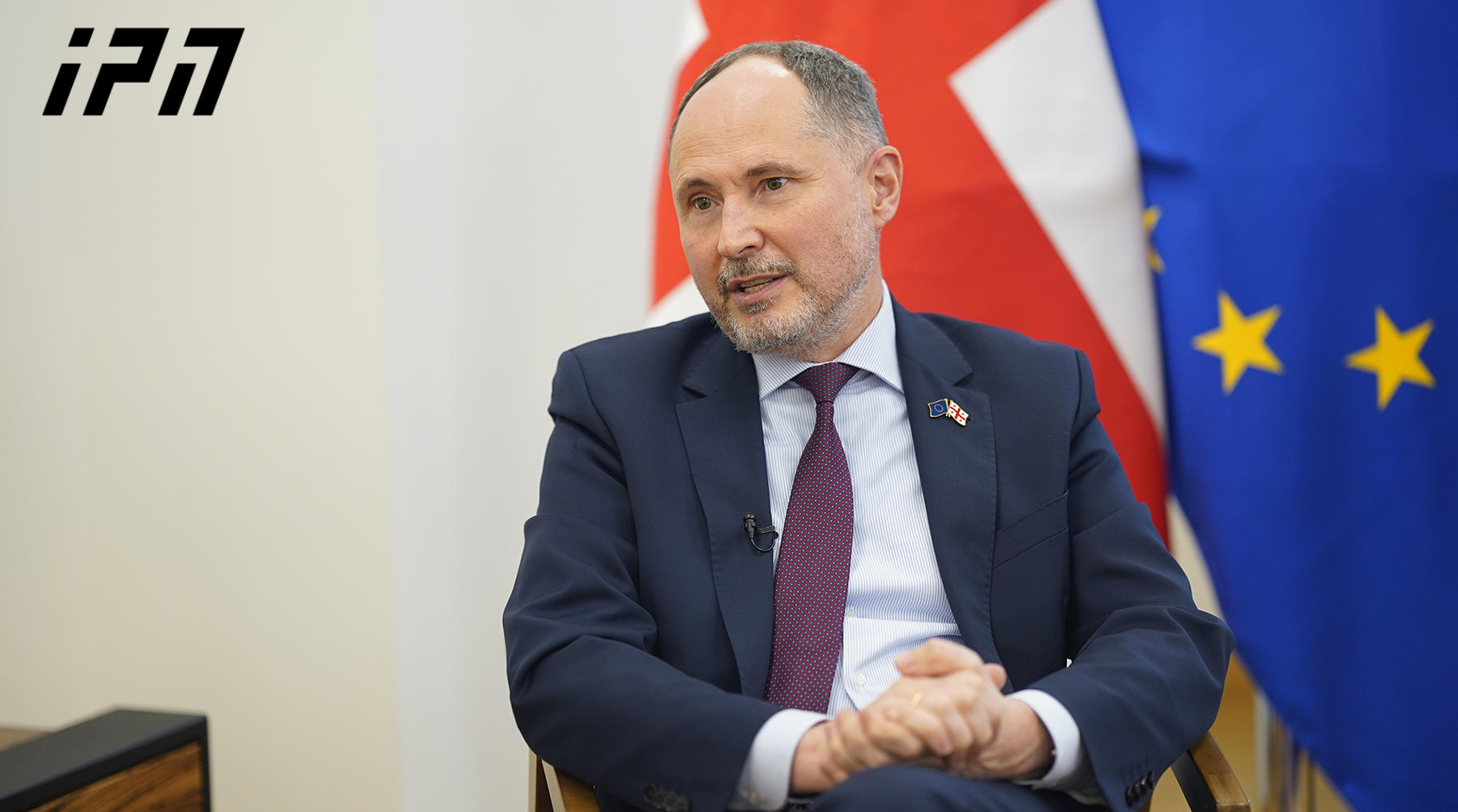
In the recent period, a number of MEPs have been actively criticizing the Georgian authorities. In response, the representatives of the Georgian government claim that these particular MEPs are friends of Mikheil Saakashvili and express their personal political views, not those of the European Union. What can you tell us - is the statement of the MEP only their personal position or the opinion of the European Union on a particular issue?
On the issue of former president Mikhail Saakashvili, I understand that judicial process is still ongoing. I understand that his lawyers have already announced that they will appeal the verdict to another court here in Tbilisi, in the second instance. And of course, they also have the possibility to use the procedure in Strasbourg when it comes to the European Court of Human Rights. So we are monitoring this very closely, and we are waiting for this process to bring clear results. In the meantime, we, as European Union, are seriously concerned about reports concerning deteriorating health of former President Mikhail Saakashvili, we remind the government that this is government's responsibility to make sure that all the rights of the former president right as a defendant in court, his rights as a prisoner, are fully respected. And at the same time, I can also note that this issue, this situation is, unfortunately, adding to the polarisation among all political parties in Georgia. And I sincerely hope that opposition parties will stay in the Parliament, will engage constructively in order to implement 12 priorities to the maximum possible extent, and make sure that Georgia evolves in a peaceful way.
You have already mentioned that it is the responsibility of the Georgian government to ensure that Saakashvili receives the services that a prisoner and a patient in his condition need, however, I must point out that Saakashvili has already assessed Judge Arevadze's decision as a death sentence for him. What will be the reaction of the European Union if the risks, that many Georgian and foreign experts are talking about, happen - I mean, the worst-case scenario and the fatal outcome...
No one wants this scenario to happen. We, as European Union, are ready to assist Georgian authorities in any way they feel it would be useful in order to find a solution to this issue. And I sincerely hope that we will never end with a situation in which the ex-president's health will be irreversibly damaged.
As you mentioned, all political issues should be discussed and resolved within the Parliament. Therefore, to what extent do you consider it justified that part of the opposition decided to boycott parliamentary life and they call on the population to hold rallies after a positive decision was not made on the postponement of Saakashvili's sentence?
The peaceful demonstration is part of any democratic system. At the same time, I have been very strongly advocating for all opposition parties to stay in Parliament, to stay engaged, and to work constructively in order for Georgia to move towards European Union membership.
We cannot ignore the talks about resuming bilateral flights with Russia - the United States State Department has already announced that in such a case, sanctions may be imposed on the companies. What is the EU going to do in this case?
When it comes to the issue of direct flights, to and from Russia, after Russia's unprovoked, unjustified and increasingly brutal invasion of Ukraine, 27 European Union member states have decided by unanimity to ban direct flights to and from Russia. This is a decision that has been taken not only by European Union member states, but also many other like-minded countries. It is for Georgia and Georgian authorities to decide. However, from our point of view, Georgia should align with our position as much as possible. I understand the sensitivities. But we would expect Georgia to follow our position as much as possible.
In general, do you think that there are certain problematic issues in Georgia that might need the sanctions policy from European Union?
There is a lot of talk about sanctions, we, as European Union, don't like sanctions. Sanctions are an instrument to change the behaviour of a country or an individual that we have a problem with. We have a big problem with Russia. This problem is that Russia has decided to invade another country, Russia has decided to change the internationally recognised borders, by force, Russia has decided, and this is what we can see every day on the TV screens, to bombard cities and to kill civilians, we can not allow this to happen. We cannot allow this to continue. This is why we do not only support Ukraine on all fronts, but we are also trying to impose costs on Russia. We want to influence Russia, so that the senseless war ends as quickly as possible. This is why we, as European Union, and many other countries, have decided to impose sanctions on Russia, it's not easy to decide on sanctions in the context of European Union, because such decisions are taken again by unanimity of 27 EU member states. But in case of Russia, we have decided collectively, that there is no other way, but to support Ukraine and to punish Russia. And this is what we are doing.
In the same statement of the State Department, we read that now it's not time to increase engagement with Russia. Does the European Union see the efforts from the Georgian Government to increase relations with Russia?
It's for Georgian government to decide on its relationship with Russia and any other country. What European Union position is that Russia has invaded other European country, Russia is trying to change internationally recognised borders in Europe by force. Russia is bombarding cities and killing innocent civilians in Ukraine. And we should, as European Union, we do everything in order to stop this. And we are trying to use different instruments at our disposal, including sanctions in order to influence decision-makers in Russia to change this. And to stop this horrible tragedy that is ongoing in Europe in the 21st century.
The Minister of Foreign Affairs of Russia repeatedly praised the Georgian government precisely because Georgia does not intend to impose sanctions against Russia. What do such positive statements coming from the Kremlin towards the Georgian government show us? What do you think is the goal of the Kremlin in this case?
Georgians know Russians very well. I don't need to remind you that 20% of Georgian territory is not under the control of the government in Tbilisi, that you have Russian troops stationed in 40 kilometers from the capital of Georgia. So clearly, this is a classical way of drawing a wedge between Georgia and the West. This is an attempt, in my view, to derail or delay or damage Georgia's aspiration to join Euro Atlantic and European structures. And actually, I'm not surprised because this is a classical example of Russia's disinformation, misinformation and propaganda.
Based on the fact that this is my last question, I would also like to touch on the norms of accreditation and conduct that are introduced for journalists working in the Parliament. Part of the opposition and the third sector sees the danger that the purpose of the mentioned regulations is to restrict the work of the media, in the context of which they have already called on the Chairman of the Parliament to change his order. Do you see such dangers?
I'm not an expert on accreditation procedures. I understand such procedures do exist in in most of the, if not all, parliaments inside 27 EU member states. When I visit Georgian Parliament, and recently I did it quite frequently, I always see crowds of journalists and I hope that any regulations that will be introduced will not change the situation. And at the same time, I fully understand that Parliament is a place where substantive work needs to be done. And members of Parliament should have peace and should not be distracted. So let's see how these new regulations will be implemented. I hope to see journalists in Georgian Parliament every time I am there. But of course, in case some order needs to be introduced, let's wait and see in practice how this will work.
Salome Abulashvili
InterPressNews
